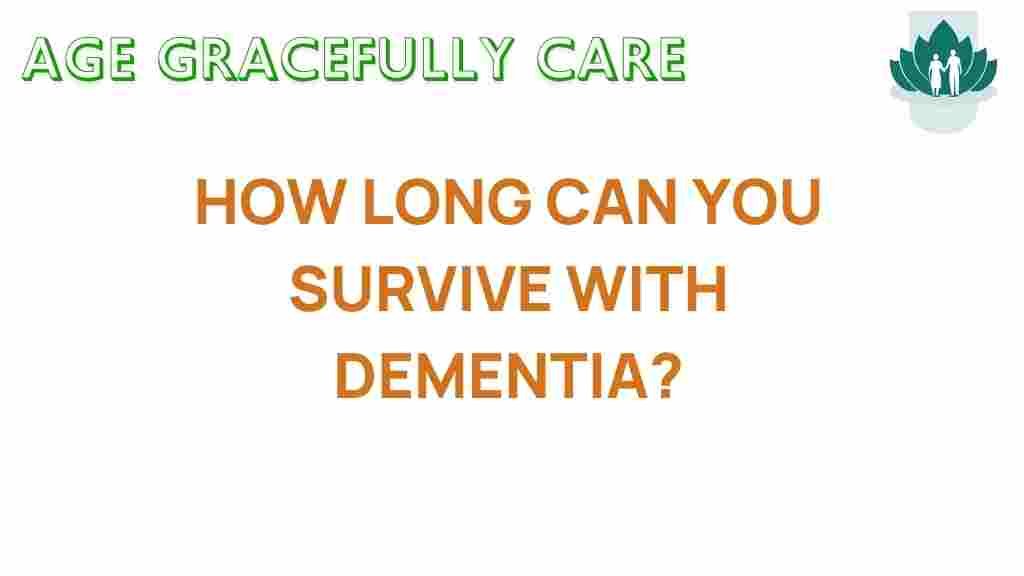The Lifespan of Dementia: What You Need to Know for Care and Support
Dementia is a progressive neurological disorder that affects millions of individuals worldwide, leading to significant changes in memory, thinking, and behavior. Understanding the lifespan of dementia—and the associated caregiving and support needs—is crucial for families, caregivers, and individuals diagnosed with this condition. In this comprehensive guide, we will explore the various aspects of dementia, including its lifespan, prognosis, the effects on health and aging, and ways to provide effective support to those affected.
Understanding Dementia and Its Lifespan
Dementia is not a single disease but an umbrella term that encompasses various conditions characterized by cognitive decline. The most common types include Alzheimer’s disease, vascular dementia, Lewy body dementia, and frontotemporal dementia. The lifespan of dementia can vary significantly based on several factors, including the type of dementia, the individual’s overall health, and the quality of care they receive.
On average, individuals diagnosed with dementia live between 4 to 8 years after their diagnosis. However, this can range from as little as 1 year to more than 20 years, depending on various factors:
- Type of Dementia: Different forms have varying progression rates.
- Age of Onset: Younger individuals may have a slower progression.
- Overall Health: Coexisting health conditions can affect longevity.
- Care and Support: Quality of care can significantly impact the quality of life.
The Stages of Dementia and Their Impact on Lifespan
Dementia progresses through several stages, each with distinct symptoms and challenges. Understanding these stages can help caregivers provide better support and care:
- Early Stage: Individuals may experience mild memory loss and difficulty concentrating. They can often live independently with minimal assistance.
- Middle Stage: Memory loss becomes more pronounced, and individuals may require assistance with daily activities. This stage can last for several years.
- Late Stage: Significant cognitive decline occurs, with severe memory loss and inability to communicate. Individuals may become dependent on caregivers for all aspects of care.
Prognosis and Factors Influencing Lifespan
The prognosis for individuals with dementia varies widely. Factors influencing lifespan include:
- Type of Dementia: Alzheimer’s disease generally has a slower decline compared to other forms.
- Age: Younger patients often experience a slower progression.
- Health Conditions: Coexisting conditions like heart disease or diabetes can complicate dementia care.
- Family History: Genetics plays a role in the progression of certain types of dementia.
Caregiving for Dementia Patients
Caregiving for individuals with dementia can be both rewarding and challenging. Understanding the needs of those affected is essential for effective support:
- Education: Learn about dementia to better understand the changes your loved one is experiencing.
- Communication: Use simple language, maintain eye contact, and be patient.
- Routine: Establishing a daily routine can provide a sense of stability for individuals with dementia.
- Safety: Ensure the living environment is safe by removing hazards and providing adequate supervision.
Support for Caregivers
Caregiving can take a toll on physical and mental health. Here are some ways to seek support:
- Support Groups: Join a local or online support group to connect with others facing similar challenges.
- Respite Care: Utilize respite care services to take breaks and recharge.
- Professional Help: Seek advice from healthcare professionals who specialize in dementia care.
Health Considerations in Dementia Care
Maintaining the health of both the individual with dementia and the caregiver is essential:
- Regular Check-ups: Ensure regular medical appointments to monitor overall health.
- Nutrition: A balanced diet can help manage symptoms and improve quality of life.
- Physical Activity: Encourage safe physical activities to promote mobility and health.
- Mental Stimulation: Engage in activities that stimulate cognitive function, such as puzzles or reading.
Awareness and Education on Dementia
Raising awareness about dementia is crucial for improving the quality of care and support available. Here are some steps to enhance awareness:
- Community Programs: Participate in or organize community education programs about dementia.
- Social Media: Share information and resources on social platforms to reach a wider audience.
- Advocacy: Support policies that improve care and funding for dementia research.
Troubleshooting Common Caregiving Challenges
Caregivers may encounter various challenges in their journey. Here are some common issues and solutions:
- Communication Barriers: If your loved one struggles to communicate, try using non-verbal cues or visual aids.
- Behavioral Changes: Address sudden changes in behavior by understanding triggers and maintaining a calm environment.
- Refusal of Care: If your loved one resists care, try to involve them in decision-making to give them a sense of control.
Conclusion
The lifespan of dementia varies greatly among individuals, influenced by numerous factors including the type of dementia, overall health, and the quality of care received. As caregivers and loved ones navigate the complexities of dementia, understanding the stages, prognosis, and effective caregiving strategies is essential. By raising awareness and providing compassionate support, we can improve the lives of those affected by dementia and foster a more informed community.
For more information, consider visiting Dementia Care Resources and learning more about support options available in your area.
Remember, you are not alone in this journey. Support is available, and the better informed we are, the better care we can provide. For additional resources, check out Alzheimer’s Association for insights and assistance.
This article is in the category Care and created by AgeGracefullyCare Team
